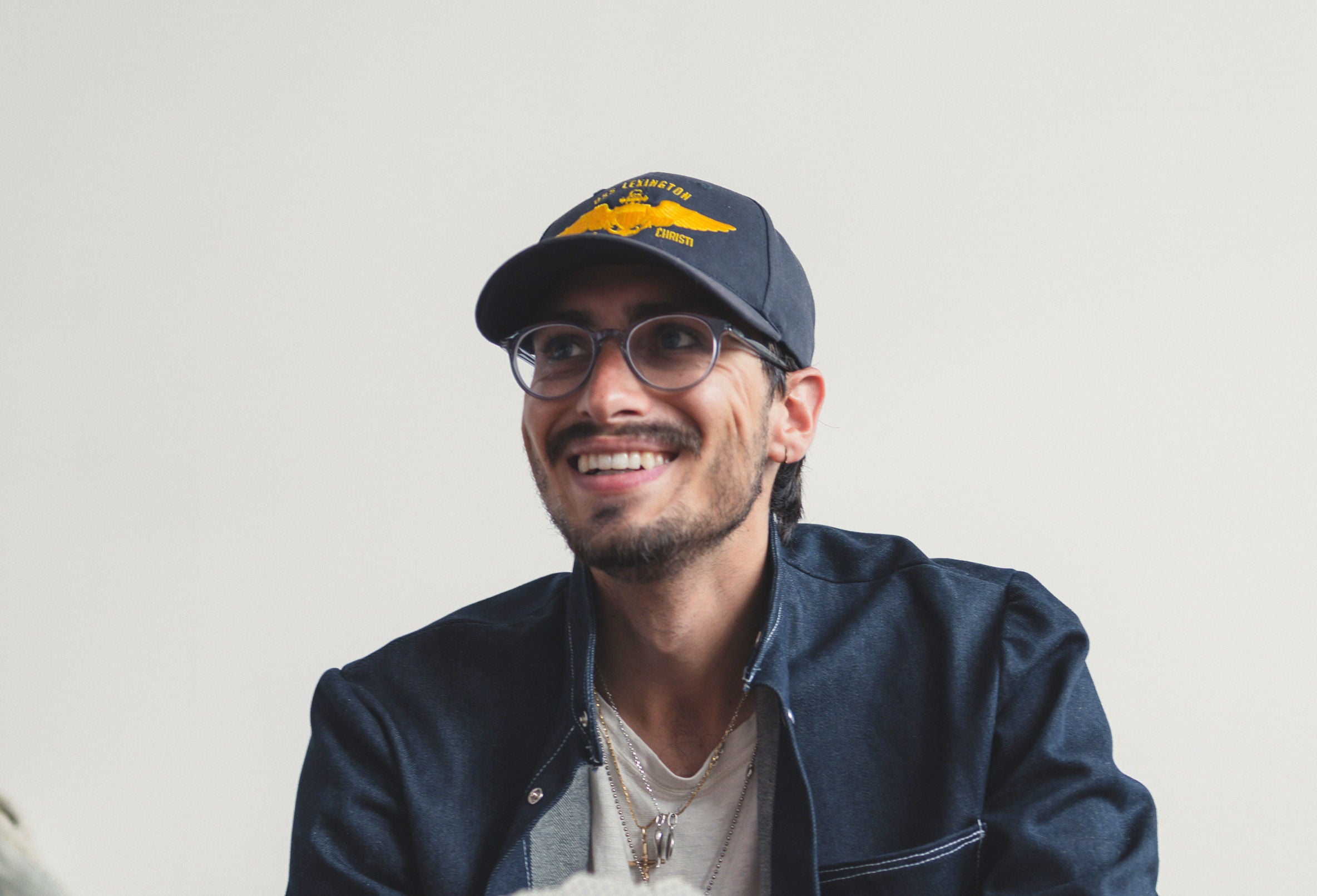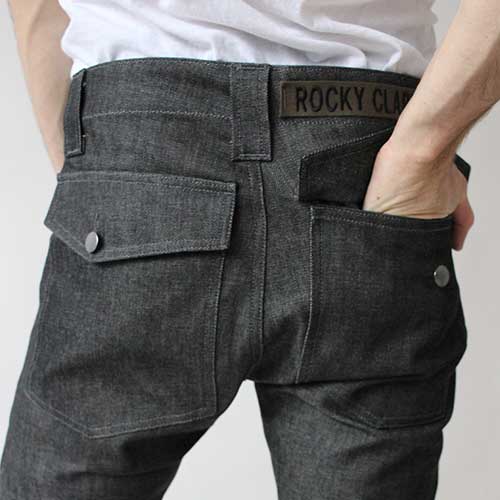
Fashion designed with the planet in mind
Joe Rotondo ’16, entrepreneur and CEO of Rocky Clark apparel, believes a clothing line can have a conscience.
Initially conceived as a side hustle, Rotondo’s New York-based jeans company suits customers who love fashion and wish to reduce their carbon footprint. Textiles, categorized as municipal solid waste by the Environmental Protection Agency, account for 17 million tons of landfilled material annually. Part of the problem is disposable clothing or fast fashion, garments made cheaply by manufacturers using exploitative labor practices and shoddy fabrics. Another issue: people dispose of clothing long before it’s worn out.
Some eco-conscious consumers have responded by mending or upcycling clothes. Designers like Rotondo are battling disposable fashion by using only organic fabric and designing with long-term wear in mind. Rocky Clark jeans, for instance, come with patches at the knees since that’s where material first shows signs of wear.
Interdisciplinary approach
Rotondo, who has a degree in textiles, fashion merchandising, and design (TMD) from the College of Business, began his studies at URI as a kinesiology major before switching to TMD. Both disciplines, though, influence his design, Rotondo says. “I wanted to study kinesiology initially because I love sports. I realized what I really wanted, though, was to design uniforms and sports jerseys.
“But kinesiology was super-informative in terms of thinking about how things should fit,” Rotondo said. “I feel blessed that being at a public university like URI, rather than a fashion institute, allowed me to get a well-rounded education.”
Rotondo also credits URI with affording him unique opportunities, such as his study abroad experience in Florence, Italy, where he studied tailoring at Accademia Italia. “There, I learned about a tailored fit and the importance of the silhouette,” he says.
“I am obsessed with the blending of the old with the new and the American ethic of things being built to last,” Rotondo notes.
Rotondo was a 2016 recipient of a URI Undergraduate Research and Innovation Grant, which planted the idea that became Rocky Clark, says Susan Hannel, associate professor and chair of the Textiles, Fashion Merchandising and Design Department. “Joe’s URI experience shows the importance of research grants and exhibition opportunities like Spring Splash to fashion industry entrepreneurship.”
‘You go for it’
Rotondo’s collection started with a pair of jeans he handmade for himself in 2015. “I was at a friend’s house, and he asked where I got the jeans and would I make him a pair?” Rotondo recalls. “That ignited the process.”
Rotondo’s progress has been slow and steady—by design. He envisions career longevity of the type Ralph Lauren enjoys. Rotondo intends one day to oversee all aspects of production, from farm to factory, so as to stay true to his business model: handcrafted clothes made of sustainable materials in a manner that is both ethical and eco-friendly. Rotondo’s also committed to donating 3% of his profits to charitable organizations.
And where did he learn to sew?
“My godmother Sue Connolly, a schoolteacher, taught me, and my parents gave me the freedom to do whatever I wanted, to try new things and experiment, to learn what it was that I loved,” Rotondo says. “Sometimes that means learning what you don’t like. You need to have patience. And when you find what you do like, you go for it.”
— Marybeth Reilly-McGreen

